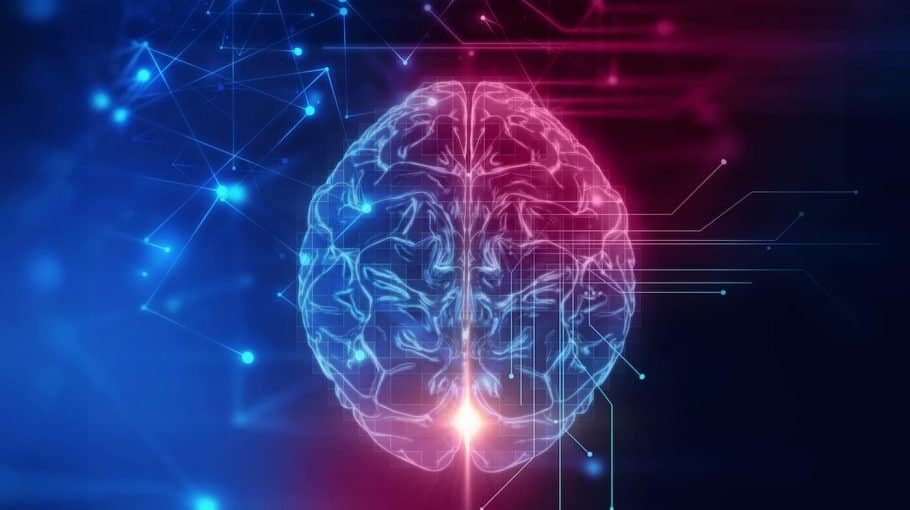One of the most common theories behind dreaming is the Activation Synthesis Theory.
It’s no secret that, as a species, humans are obsessed with the process of dreaming.
We write poems and songs about it. We even have movies about it. A simple google search about dreaming results in thousands of websites where people share their dreams or talk about what their dream interpretations could be.
There are even certain self-proclaimed psychics who claim dreams are a way to see the future.
What’s odd is that there are common dreams, such as teeth falling out or somehow going to work and forgetting to wear clothes. We have all struggled with these silly dreams at one point or another, but how many of us actually understand why?
This is something scientists are continuously trying to figure out. There are a variety of theories about what causes the process of dreaming, although they are all, as of yet, unproven.
Had Any Good Dreams Lately?
The activation-synthesis theory is a theory based on neurobiological studies into the reasons why we dream.
Since the beginning of time, people have been confused by the process of dreaming. At one point, dreams were alleged to be the chosen method of communication with people from angels or the gods.
Over time, as scientific advancements were made, people began to look at the process of dreaming more skeptically.
Among the people that began to look at dreaming more skeptically were a couple of Harvard neuroscience students named Allan Hobson and Robert McCarley.
Allan Hobson and Robert McCarley were the scientists that first proposed the Activation Synthesis Theory. In 1977, they released a hypothesis that dreaming is caused by the brain trying to make sense of the activity that is still taking place in the brain during sleep.
The brain is the only part of our body that does not rest when we are sleeping. In fact, the brain is always acting at a remarkably high level. The difference when we sleep, according to the hypothesis from Hobson and McCarley, is that the parts of the brain that normally control bodily functions like walking and chewing are now free to take over some of the responsibility of thinking.
How Does Activation Synthesis Work?
The activation synthesis theory is the suggestion that our dreams are caused by these enhanced processes of the brain, which occur when our brain is working entirely on the process of thought. People used to think that sleeping meant we were in a completely passive state. We now know that sleeping is probably the most active period of the day for our brains.
In fact, the brain is almost in overdrive during the time we are sleeping. Our brains work almost like a computer during this time. They are sorting through the activities of the previous day, “filing away” the things we have learned, and making sense of the parts of the day that might have been confusing or overly stressful for us. You might find yourself asking, though, how any of this relates to dreaming.
According to Hobson, when our brains hit the REM cycle of sleeping, our brain begins to sort through the limbic system, which is responsible for emotions, memories, and other such sensations. This is when the process of “making sense” of our thoughts and feelings begins.
Another suggestion from Hobson was that there are five characteristics to dreams that result from this process.
Dreams Are Illogical
Have you ever dreamed you were at dinner with a variety of people that otherwise would not be joining you for dinner? Have you ever dreamed that you went to visit a relative who has passed away? Have you ever dreamed that you were driving a car underwater or flying? Most people have experienced these kinds of ridiculous alternate “realities” while in a dream state.
Dreams are Difficult to Remember
At one point or another, we have all woke up and known we just dreamed something ridiculous, but been unable to remember the contents of the dream. Some people claim they don’t dream simply because they are never able to remember what they dreamed about.
Of course, all people dream. The brain is always working, so we don’t get to just “shut off” ever. If you aren’t remembering your dreams, it’s likely because the processes of sorting and “filing away” the day were completed before you woke up.
Dreams Involve Intense Emotional Feelings
As mentioned before, we sometimes dream about people who have passed away. Often, in dreams, we “reconnect” with the memories of people we miss the most. We might also experience dreams about loved ones who are still in our lives that cause us to wake up feeling angry at them. It is often joked about that spouses punish others for the things they have done in their dream state.
Dreams Cause Us to Accept Things That We Otherwise Would Not
So you dreamed you lived in pioneer times? Maybe you dreamed you were a mermaid or an animal. Things that seem normal in dreams are often anything but. We have experiences in dreams that we aren’t able to make sense of once awake, but often feel completely normal at the time.
Dreams Involve Strange Sensory Reactions
We can feel pain, experience emotions, and even smell in our sleep. Often, these aspects of a dream are reactions to things we are actually experiencing. Some people even report wetting the bed because they dream they are on the toilet. Our senses stay awake, but our brains are unable to interpret the cause of the reactions we are dealing with.
Knowing all of this, the activation synthesis theory can be summarized into three key points-
The Brainstem Has to be Highly Active in Order for Dreaming to Take Place
The brainstem is where most of our thoughts and feelings are stored. In order for us to dream as lucidly as we often do, we need to have this part of the brain working hard.
All Dreaming Takes Place During the REM Cycle of Sleep
The REM cycle of sleep is our deepest state of sleep, and we cannot get into the process of dreaming until we are fully asleep.
Our Forebrain Works Hard to Apply Meaning to Random Signals That the Brainstem Creates, Which Causes Us to Have Coherent Dreams
During the REM cycle, our brainstem activates. This is when our thoughts and feelings are most active. As the brain stem works in overdrive, the brain begins to process all of what is stored there. This is when our dreams are most coherent.
Does This Mean Our Dreams Don’t Mean Anything?
Absolutely not. If anything, the activation synthesis theory tells us that our dreams are highly meaningful. As our brains are trying hard to make sense of the things that confuse us, we will be more prone to dream about them. If we remember our dreams, this can give us some excellent insight into determining what struggles we are currently facing in our lives and help our more conscious state determine what we need to do to resolve these parts of our life.
Dreaming is also very important in the process of sorting our emotions. When we dream of the people we miss, we are often attempting to resolve our feelings of loss. When we dream of being angry at someone, it’s often because we are afraid or have an underlying sense of hostility toward them that needs to be targeted and sorted out.
Similarly, our bodies sometimes seem to use dreams to tell us things. Oddly, many cancer patients have reported dreaming that they had the disease before ever being diagnosed.
There is a plethora of information online that involves dream interpretations. While these interpretations are theories, as well, and not scientifically proven, there are some that seem to hold merit.
A good example of a dream interpretation that seems to make sense is the dream of losing teeth. Most allege that this dream is about feeling a loss of control in life. Our teeth are often viewed as the one of the most cosmetically important parts of our appearance. When we lose our teeth in the dream, we feel embarrassed and panicked that we will be exposed to the rest of the world as “incomplete.”
Whether the dream interpretations are always correct or not, it’s a good idea to examine your dreams, particularly if the same dream occurs often. This is a good way to examine our life from an unfiltered point of view and could grant us excellent insight into the parts of our life that aren’t going as well as we’d like.
Studies into the Activation Synthesis Theory Are Ongoing
The process of dreaming is still very much a mystery, but the activation synthesis theory does seem to be gaining ground in the world of neuroscience. Harvard University, especially, takes part in ongoing studies into the theory in the hopes that we will eventually have a better understanding of all the functions of the brain as we sleep.
Getting ready for an exam, students have to handle tons of writing assignments like activation synthesis theory essays, AP psychology research papers, etc. And to deal with all this stuff, they would need to hire a professional writer, from a research paper writing service CustomWritings, for example, to get expert help.





